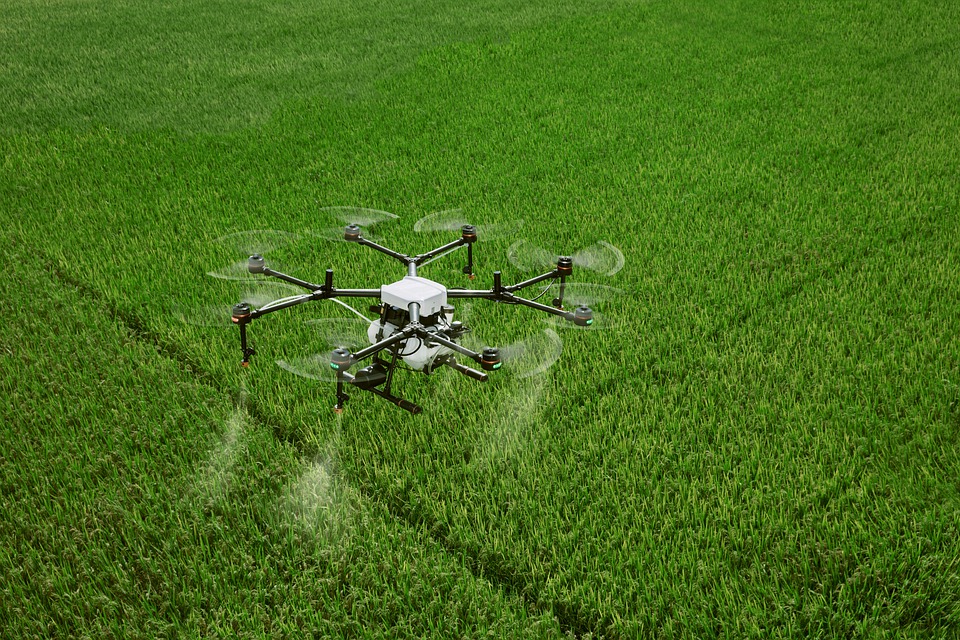
Agricultural drones, also known as “ag drones,” are unmanned aerial vehicles (UAVs) designed for use in farming and agriculture.
They are equipped with a range of sensors and imaging technologies that can provide farmers with valuable data about their crops,
such as crop health, water distribution, and nutrient levels.
Features:
- High-resolution imaging technology
- GPS and mapping capabilities
- Sensors to monitor soil and plant health
- Precision spraying technology
- Automated flight and data analysis software
Pros:
- Increased efficiency and productivity: Agricultural drones can cover large areas of farmland quickly and efficiently, allowing farmers to identify potential problems early on and make informed decisions.
- Cost savings: By identifying problems early on, farmers can reduce waste and optimize their use of resources such as water and fertilizer, leading to potential cost savings.
- Improved accuracy: Agricultural drones can provide highly accurate data about crop health and nutrient levels, which can help farmers make more informed decisions about planting, fertilizing, and harvesting their crops.
- Reduced environmental impact: Precision spraying technology can help reduce the amount of chemicals needed to treat crops, resulting in a lower environmental impact.
Cons:
- High initial cost: Agricultural drones can be expensive to purchase and maintain, which can be a barrier for some farmers.
- Limited flight time: Most agricultural drones have limited flight time, which means they may not be able to cover large areas of farmland in a single flight.
- Regulatory restrictions: In some areas, there may be restrictions on the use of drones for agricultural purposes, which could limit their effectiveness.
Conclusion: Overall, agricultural drones have the potential to revolutionize the way farmers manage their crops, by providing valuable data and insights that were previously unavailable. However, their high cost and limited flight time may be a barrier for some farmers, and regulatory restrictions could limit their effectiveness in some areas. Despite these challenges, it is likely that the use of agricultural drones will continue to grow in the coming years as farmers seek to optimize their use of resources and improve their yields.

Fruitful and productive information regarding agri drones…